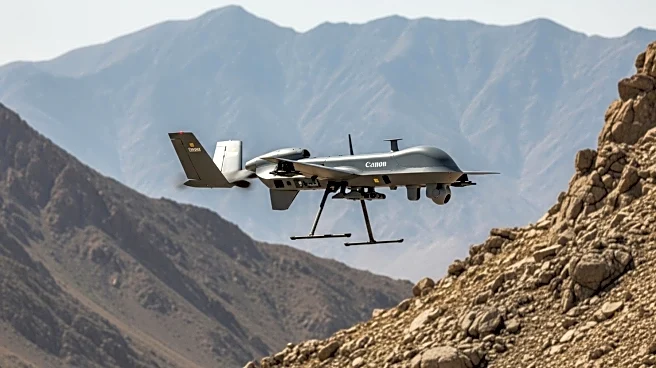What's Happening?
Israeli forces have uncovered a significant cache of explosives allegedly planted by Hezbollah in the northern village of Ghajar, located along the Israel-Lebanon border. The discovery was made in an underground site, containing hundreds of kilograms of explosives, which military engineers have been working to neutralize. The explosives are believed to be linked to a thwarted Hezbollah operation from November 2005, aimed at kidnapping Israeli soldiers. Although the security establishment cannot confirm a direct connection to the 2005 incident, officials suspect the structure was built before the Second Lebanon War in 2006. The discovery has prompted security alerts in nearby towns, with residents being warned about controlled detonations.
Why It's Important?
The discovery of the explosives cache highlights ongoing security challenges along the Israel-Lebanon border, a region with a history of conflict involving Hezbollah. The presence of such a large stockpile of explosives underscores the potential threat posed by Hezbollah to Israeli security forces and civilians. This incident may influence Israeli military strategies and border security measures, as well as impact diplomatic relations between Israel and Lebanon. The situation also raises concerns about the stability of the region and the potential for future escalations in violence.
What's Next?
Israeli military operations to safely neutralize the explosives are ongoing, with controlled detonations planned to ensure public safety. The discovery may lead to increased military vigilance and security measures along the border. Additionally, it could prompt diplomatic discussions between Israel and Lebanon, as well as international stakeholders, to address the security situation and prevent further incidents. The Israeli government may also consider revisiting its defense strategies and border policies in light of this development.










